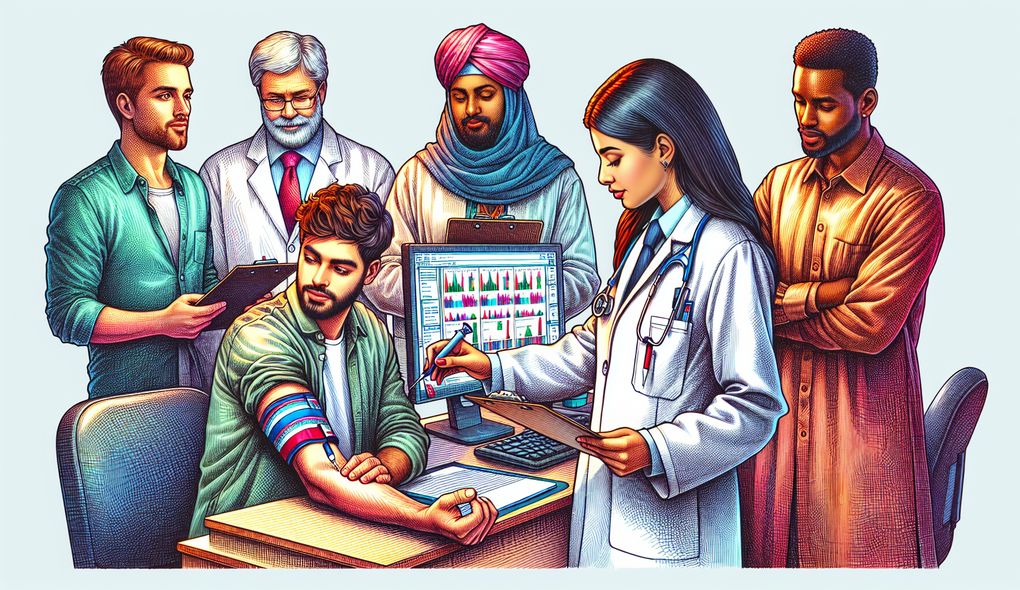How do you ensure a high level of accuracy in study-related documentation, such as consent forms and case report forms?
INTERMEDIATE LEVEL

Sample answer to the question:
To ensure a high level of accuracy in study-related documentation, I believe in following a meticulous process. First, I thoroughly review the study protocol and familiarize myself with the specific requirements for documentation. Then, I pay close attention to detail when creating and updating consent forms and case report forms. I double-check all the information to ensure accuracy and completeness. Additionally, I maintain a system of checks and balances, where I involve a second person to review and verify the accuracy of the documentation. This helps minimize errors and provides an additional layer of quality assurance. Finally, I stay up-to-date with the relevant regulatory guidelines and attend training sessions to enhance my knowledge and skills in study-related documentation.
Here is a more solid answer:
Ensuring a high level of accuracy in study-related documentation requires a methodical approach combined with attention to detail. Firstly, I carefully review the study protocol to identify the specific requirements for consent forms and case report forms. This includes understanding the data to be collected, the format, and any specific language or content needed. Throughout the creation and updating process, I meticulously review each form, cross-referencing it with the protocol to verify all details are accurate and complete. I am also vigilant in ensuring that the forms comply with the relevant regulatory guidelines, such as Good Clinical Practice (GCP), to maintain ethical standards and data integrity. To further enhance accuracy, I collaborate with a second reviewer to conduct a thorough review of the documentation, providing a fresh perspective and opportunity to catch any potential errors. Additionally, I utilize organizational tools, such as checklists and templates, to streamline the documentation process and maintain consistency. Finally, I regularly participate in training sessions and stay updated on regulatory changes to continuously improve my knowledge and understanding of study-related documentation practices.
Why is this a more solid answer?
The solid answer expands on the basic answer by providing more specific details and examples to demonstrate the candidate's expertise and experience in ensuring accuracy in study-related documentation. The answer showcases the candidate's methodical approach, attention to detail, knowledge of regulatory guidelines, and their use of organizational tools. However, it can still be improved by incorporating specific examples or achievements related to their experience with study-related documentation.
An example of a exceptional answer:
Ensuring a high level of accuracy in study-related documentation is crucial to maintaining the integrity of clinical trials. To achieve this, I employ a comprehensive approach that encompasses several key strategies. Firstly, I start by thoroughly understanding the study protocol and related documentation requirements. This includes analyzing the data collection process, specific variables, and formatting guidelines. I then use this knowledge to create detailed templates and checklists that facilitate accurate and consistent documentation. During the documentation process, I utilize advanced data management software and electronic data capture systems to streamline data entry and minimize errors. Additionally, I proactively engage with the clinical staff involved in the study to clarify any ambiguities or uncertainties in the protocol, ensuring accurate completion of the required forms. As a quality control measure, I conduct regular audits of the study-related documentation to identify any gaps or inconsistencies. This includes verifying the accuracy and completeness of consent forms, case report forms, and regulatory submissions. To stay updated on regulatory guidelines and best practices, I actively participate in continuing education programs and professional conferences focused on clinical trial management and documentation. Overall, my commitment to attention to detail, strong organizational skills, and continuous improvement allows me to consistently achieve and maintain a high level of accuracy in study-related documentation.
Why is this an exceptional answer?
The exceptional answer goes above and beyond by providing additional strategies and highlighting the candidate's commitment to continuous improvement and excellence in study-related documentation. The answer demonstrates the candidate's ability to analyze the study protocol, create templates and checklists, utilize advanced software, engage with clinical staff, conduct audits, and stay updated on regulatory guidelines. However, it can still be improved by incorporating specific examples or achievements related to their experience and showcasing their exceptional abilities in this area.
How to prepare for this question:
- Familiarize yourself with the relevant regulatory guidelines, such as Good Clinical Practice (GCP), and understand how they apply to study-related documentation.
- Develop a systematic approach to reviewing and creating consent forms and case report forms, ensuring attention to detail at every step.
- Utilize organizational tools, such as templates and checklists, to streamline the documentation process and maintain consistency.
- Collaborate with a second reviewer to ensure accuracy and minimize errors.
- Stay updated on the latest industry developments and continue your education through training programs and conferences focused on clinical trial management and documentation.
What are interviewers evaluating with this question?
- Attention to detail
- Knowledge of regulatory guidelines
- Organizational skills

